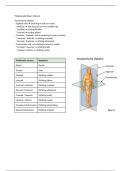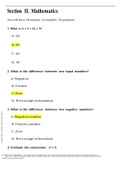Samenvatting
Extensive Commercial Law Summary (2023)
- Vak
- 620307-B-6
- Instelling
- Tilburg University (UVT)
The document contains all class notes which are complemented by the mandatory reading (on transnational commercial law). The course has 10 weeks which are the following Week 1 - Introduction: General principles, themes, and key issues (ch 1) Week 2 - International sales of goods and the CISG (ch ...
[Meer zien]













